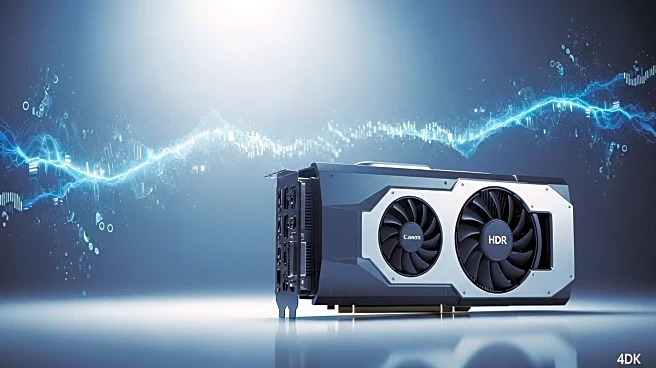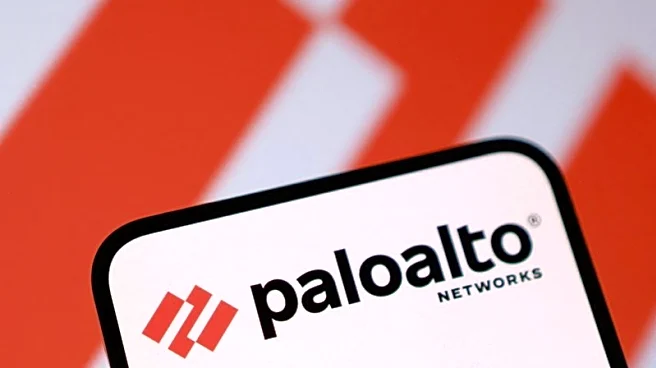What's Happening?
Nvidia, a leading player in the AI semiconductor industry, is navigating complex geopolitical challenges as the U.S.-China tech rivalry intensifies. The company reported significant growth in data center revenue, yet faces restrictions on H20 chip sales to China due to U.S. export bans. These restrictions, initiated under the Biden administration and tightened under Trump-era policies, have resulted in substantial revenue losses for Nvidia. Despite these hurdles, Nvidia's CEO Jensen Huang projects the Chinese AI market could reach $50 billion annually by 2025, contingent on access. However, Nvidia's market share in China is expected to decline as local competitors like Huawei and SMIC advance in technology. Nvidia is adapting by developing a China-compliant chip, the B30A, and diversifying its global footprint, including a major partnership with Saudi Arabia.
Why It's Important?
The geopolitical tensions between the U.S. and China have significant implications for Nvidia and the broader semiconductor industry. Nvidia's ability to innovate and diversify is crucial for maintaining its leadership in AI technology. The company's financial strength and strategic partnerships are vital in mitigating risks associated with regulatory changes and market volatility. The outcome of Nvidia's efforts to regain market access in China could influence the global AI infrastructure landscape and impact U.S. foreign policy. Investors and industry stakeholders are closely monitoring Nvidia's strategies to navigate these challenges and capitalize on AI's transformative potential.
What's Next?
Nvidia's future actions will likely focus on securing approval for the B30A chip and expanding its Blackwell platform to regain lost ground in China. The company's ability to maintain data center gross margins and adapt to U.S. policy shifts will be critical. Analysts predict continued revenue growth driven by cloud and enterprise demand, despite regulatory uncertainties. Nvidia's long-term strategy involves balancing enterprise-grade AI solutions with consumer AI democratization, creating resilience against sector-specific shocks. The company's success in these areas will determine its position in the ongoing AI supercycle.
Beyond the Headlines
Nvidia's dominance in AI training chips and its ecosystem advantages create high switching costs for customers, but also expose the company to geopolitical risks. As hyperscalers develop in-house AI chips, Nvidia's technology becomes a tool of U.S. foreign policy. The company's dual strategy of enterprise and consumer AI solutions provides a buffer against potential disruptions. Nvidia's ability to navigate these complexities will shape its role in the global AI landscape and influence industry dynamics.











